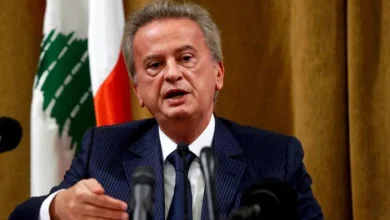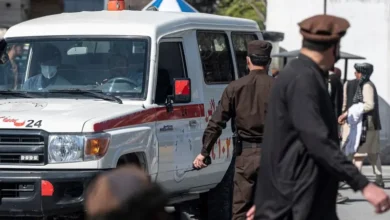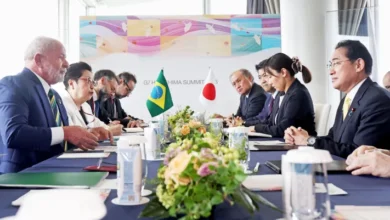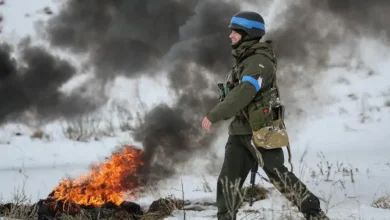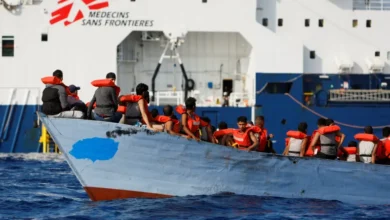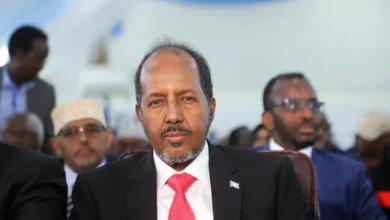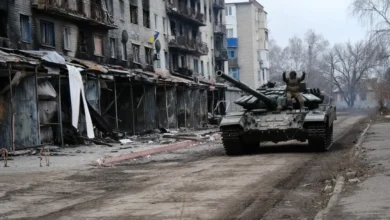Wagner chief ‘raises stakes’ with Russian defense ministry over contract policy: UK
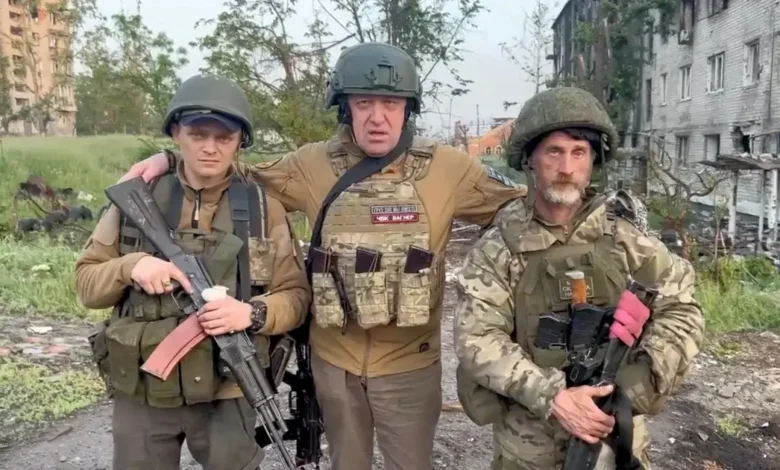
Russia’s top mercenary and Wagner group chief Yevgeny Prigozhin “raised the stakes” in his ongoing feud with top brass at the Russian Ministry of Defense after he submitted an alternative agreement to the state-mandated volunteer contracts, the UK Ministry of Defense said on Tuesday.
Prigozhin said on Monday that he was expecting a reply from the Russian Ministry of Defense regarding a “contract of his own drafting” which he had delivered to the ministry three days before, the British ministry said in a war intelligence update.
“Although the content of Prigoszhin’s document has not been made public, the act of him delivering it raises the stakes, and is highly likely another deliberate effort to undermine the authority of the official military authorities,” the UK ministry of defense added.
The British intelligence report also stressed: “Prigozhin’s tone towards the defense ministry has become unambiguously confrontational. The ministry almost certainly sees this as deeply unfortunate at a time when it is grappling with Ukraine’s counter-offensive.”
Furthermore, Washington-based think tank Institute for the Study of War (ISW) highlighted in an assessment that Prigozhin continued to compete with the Russian Ministry of Defense and portray Wagner as more disciplined than regular Russian forces.
ISW reported that Prigozhin expressed concerns about the potential confiscation of weapons obtained by volunteer units outside of the defense ministry’s deliveries and anticipated the replacement of experienced volunteer commanders with less combat-effective ones possessing higher military education. He also argued that the formalization process would disrupt hierarchies within volunteer formations and force volunteers into military service without the defense ministry respecting contract deadlines. He also accused the ministry of inadequate supply provisions and mistreatment of irregular forces.
It added: “Prigozhin’s behavior indicates that he is unlikely to subordinate Wagner forces to the Russian MoD unless such a move would grant him more political power within Russia.”
Defense Minister Sergei Shoigu had issued a decree on June 10, formalizing the organization of “volunteer formations” claiming to aim for enhancing the army’s efficiency. The decree required volunteer fighters to sign individual contracts with the Ministry of Defense to obtain the necessary legal status for operations in Ukraine. However, Prigozhin openly rejected signing any contracts and criticized Shoigu’s leadership capabilities, escalating his ongoing public dispute with high-ranking military officials.
Yet, despite the ongoing public feud, Prigozhin claimed to maintain strong positive relations with President Vladimir Putin, emphasizing Wagner’s complete subordination to Russia’s interests and its supreme commander. This in turn put Prigozhin in a difficult position, when Putin backed Shoigu’s order on June 13, urging all mercenary groups involved in the Ukraine conflict to swiftly sign volunteer contracts with the defense ministry.
This proposed contract system would integrate Wagner and Prigozhin more closely into the defense ministry’s structure, potentially curbing Prigozhin’s influence and preventing his further aspirations of political and military power.


